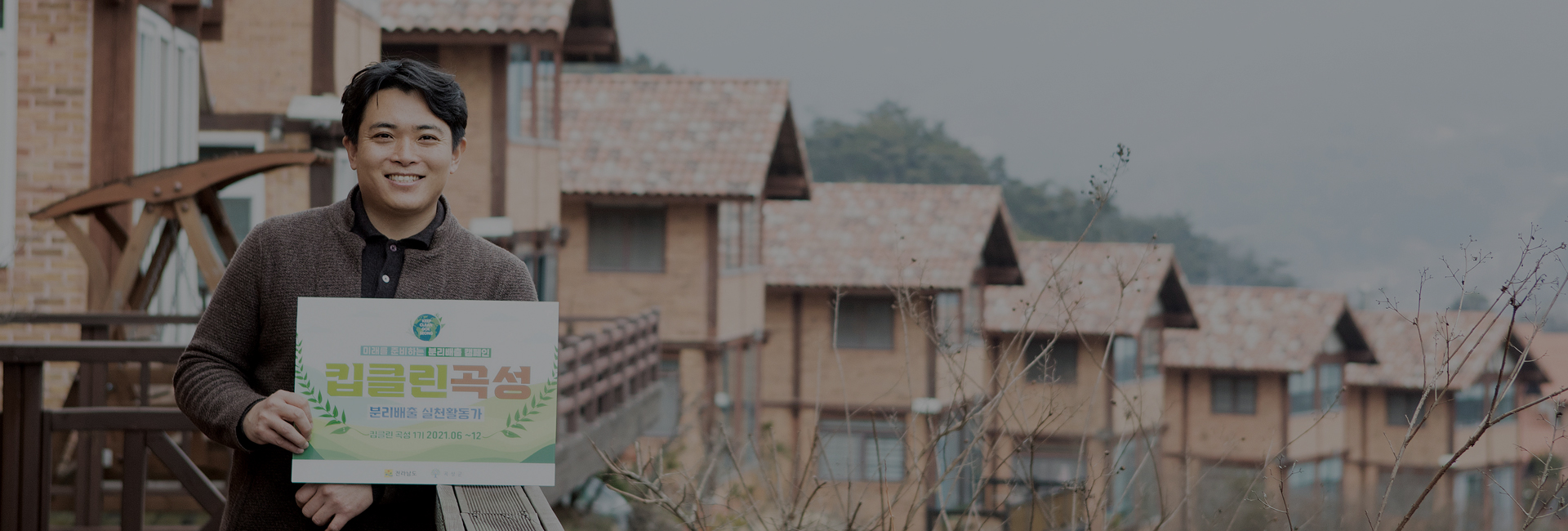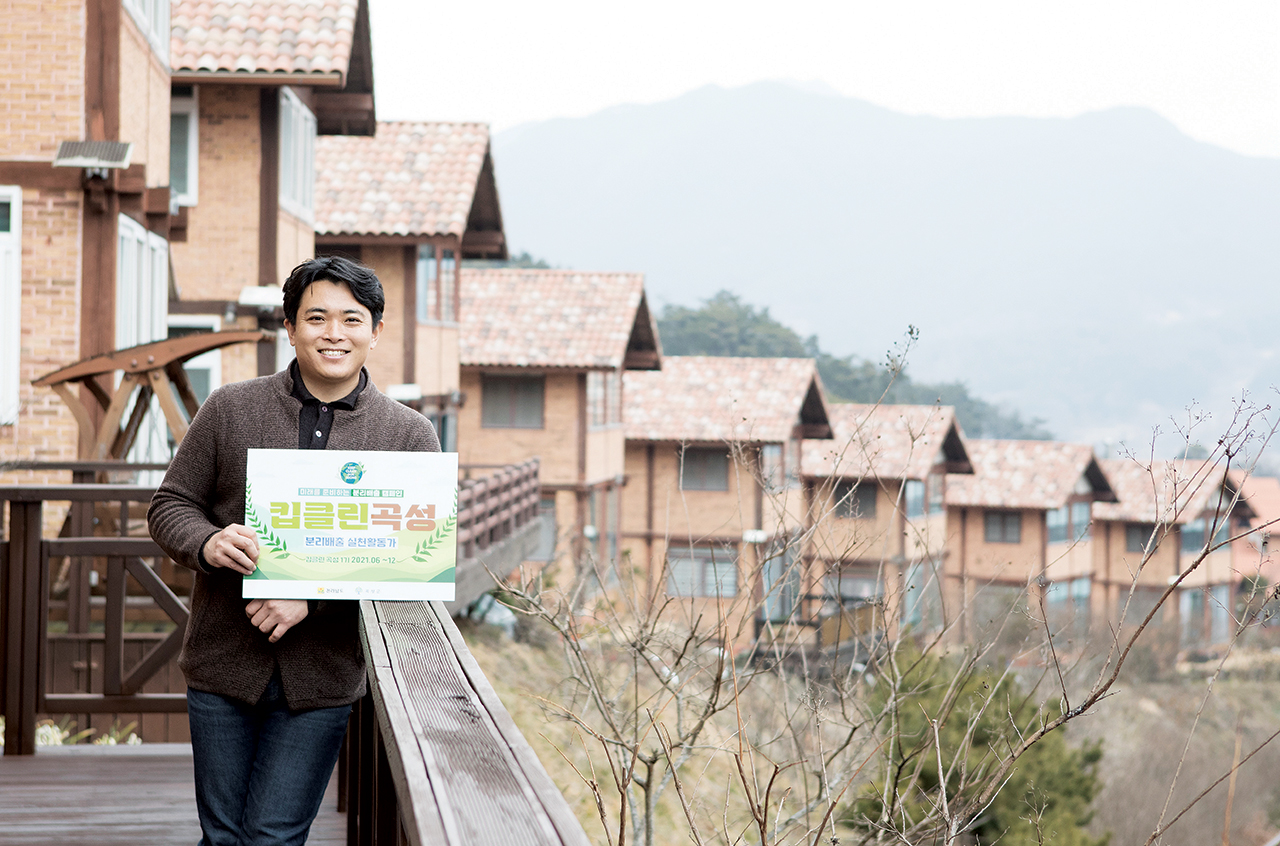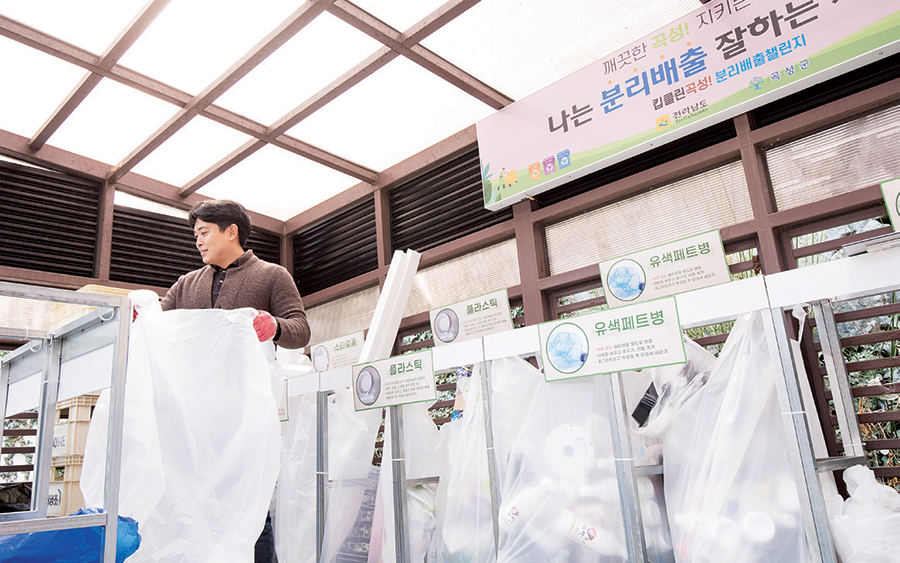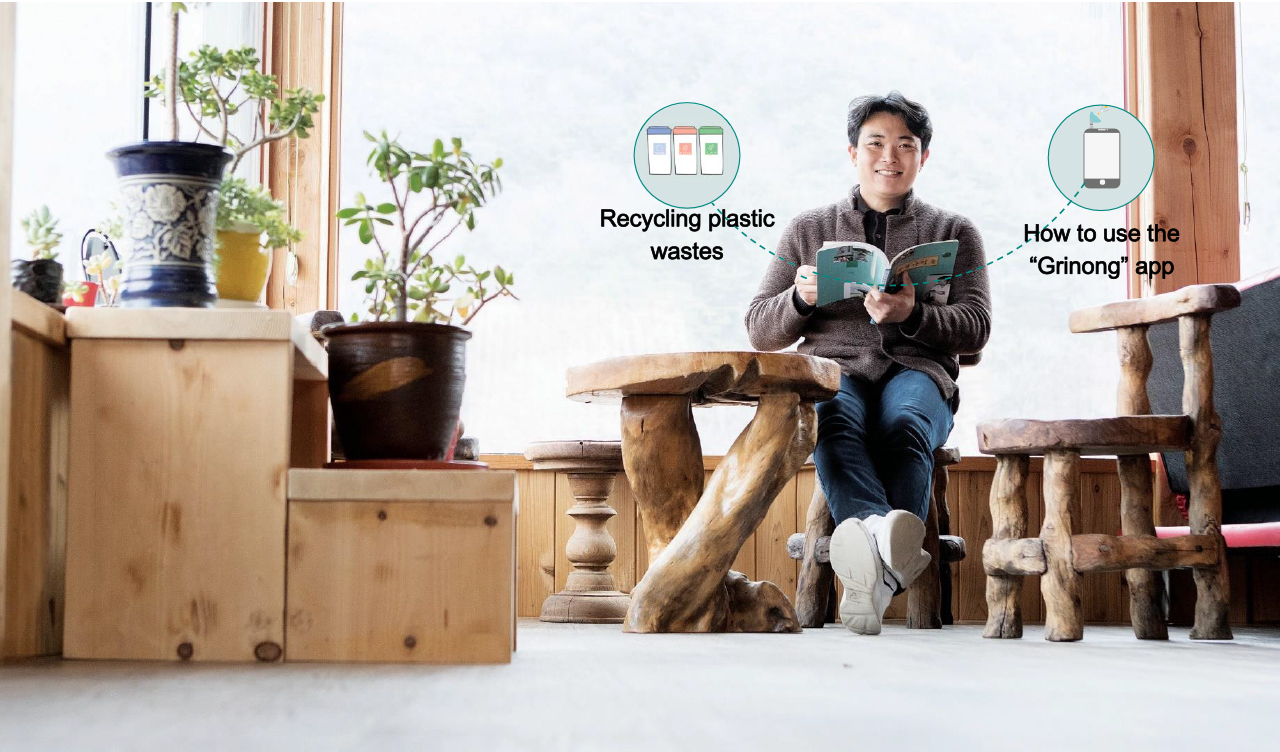
- Water, Nature and Humankind
- Natural Meeting
-
Channeling good influences to
make Gokseong a clean and
sustainable village
Cooperative, an
Jang Yeong-bae, a
representative of Gangbit- Written by. Lim San-ha
- Photo by. Kim Beom-ki
- The changes that make the biggest difference in the world are often the results of many small actions and the beneficial influences originating from those actions. Consequently, our life continues to develop in a meaningful direction, and we can take great strides towards a sustainable future. Jang Yeong-bae, a representative of the village of Gangbit who is deeply concerned about the environment, is resolutely pursuing meaningful changes together with the regional community, including the recycling of waste among other things. Each step he takes is full of the energy of good influences.

I expect that K-water, which is carrying out various
activities related to ESG, a hot new topic for Korean
society, will contribute to expanding the public culture of
voluntarism and act as a catalyst for the positive
development of society by conducting diverse projects.


The birth of a village community that represents the future of rural areas
Although society is becoming increasingly individualistic, and the contactless lifestyle is spreading due to the COVID-19 crisis, one of the hopeful changes that we can clearly see is the creation of diverse communities and the pursuit of positive changes. In our society, many different communities are being established one after the other and a new culture is also being created, and many people are thinking seriously about how to live together and produce valuable results. The village of Gangbit, whose representative is Jang Yeong-bae, is one such community. The village was established to prevent the ongoing hollowing out of agricultural communities, which is largely caused by the aging society and youth migration, and to establish a new lifestyle among rural communities by creating synergy between retirees and youth and adults, in a bid to create sustainable rural areas in the future. Although Gangbit was designed to be a large rural village consisting of more than 100 households for the first time in Korea, the occupancy rate only reached 20% at the time of its opening in 2013. However, by striving to achieve the goal of successful migration to a rural area, about 50% of the 109 households have now been occupied, while the others have been converted into pensions for tourists, creating a unique village where residential houses and accommodation facilities exist side by side.
Gangbit is characterized not only by its unique form but also by its identity, with Jang Yeong-bae and the village residents focusing on the environment in particular.
“Most of the inhabitants of Gangbit say that they are charmed by the clean environment of Gokseong. However, we share the same concerns about environmental damage, because many people don’t have a clear sense or awareness of the precious values of the environment. In order to protect the environment and solve problems together with the local residents, we carried out the “Keep Clean Gokseong” project last year.”
The project involves the challenge of recycling waste in preparation for a cleaner future. As the villagers are participating in the project, Gangbit is demonstrating its changed appearance, and its residents are taking the initiative in continuously recycling waste in order to make the village sustainable and clean for the future.

A paradigm shift in recycling waste and the resulting butterfly effect
In Korea, recycling waste has become a social norm to which everyone must adhere. However, the reality is that not everyone separates their garbage properly. That’s why village representative Jang and local residents started the Keep Clean Gokseong project under the theme of recycling waste, and share the view that small actions can lead to big changes. Among recyclable wastes, plastic bottles are the main target of recycling because they are the dominant – and most pollutant - recyclable material. However, if the scope of the project were too large, people might feel pressured, so the intention was to do at least one thing properly. Therefore, participants should rinse and dry plastic bottles thoroughly so that no contents remain inside them, remove the label, and then crush them before disposing of them. However, many people do not do this correctly. Jang strives to provide precise information about the project and aims to diversify the types of recyclable materials in order to increase the effectiveness of the recycling activity.
As such, he guides not only residents but also pensioners to separate and put out their waste correctly. A workshop was held with the aim of raising environmental awareness, and challengers and supporters were selected for a 50-day program to encourage people to participate in the project and to find solutions designed to improve the situation. Fortunately, such efforts came to fruition.
“In rural communities, people burn garbage and don’t recycle the waste properly because they find it tiresome, lowering the efficiency of recycling. That’s why our top priority is to encourage a paradigm shift. When people are made fully aware of the issue, they will participate in the activities, so we have carried out a series of processes aimed at raising awareness. Such efforts have made our village noticeably more pleasant than before, and residents can share their satisfaction, pride, and responsibility as environmental protectors with each other by participating in a small environmental movement for the recycling of waste.”
Thanks to the “Keep Gokseong Clean!” project, Gangbit has improved both its environment and its overall communication and social exchanges. In particular, the household with the best recycling practice receives the signboard “Keep Gokseong Clean!”, encouraging others to take part in the project more actively. Fortunately, the local residents and the local community have experienced the tide of change.

Expanding the practice culture through the distribution of content
Once the basics are firmly established, the rate of growth will naturally increase. Representative Jang’s main goal, once this project has become well established in the community, is to create various contents on environmental practices to share with the community and many other regions. The idea, which originated from the zero-waste party held last year, could become an important cornerstone in setting the direction for becoming an eco-village. The main idea is that a rural community can spread its influence by performing sustainable environmental campaigns aimed at solving local problems on its own. In addition, the ESG-based smart farm education management app called “Grinong”, which was launched last year targeting migrants to rural areas, is expected to play a positive role in Gangbit’s full-fledged transformation into an eco-village.
 ※ This interview was conducted in accordance with the COVID-19 safety rules.
※ This interview was conducted in accordance with the COVID-19 safety rules.

Gangbit Village
The village of Gangbit was established to create a community oriented towards science and longevity where retirees, youth and adults live together in harmony, and where retirees can offer their accumulated skills and assets for the benefit of the community while enjoying the third stage of their life in meaningful ways. Representative Jang Yeong-bae, a local environmental activist, is promoting a variety of regional-based activities including the Keep Gokseong Clean project.

